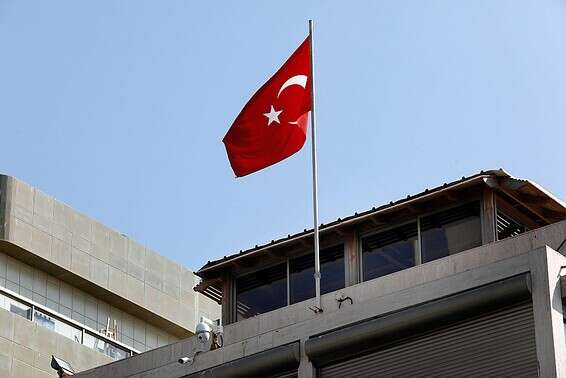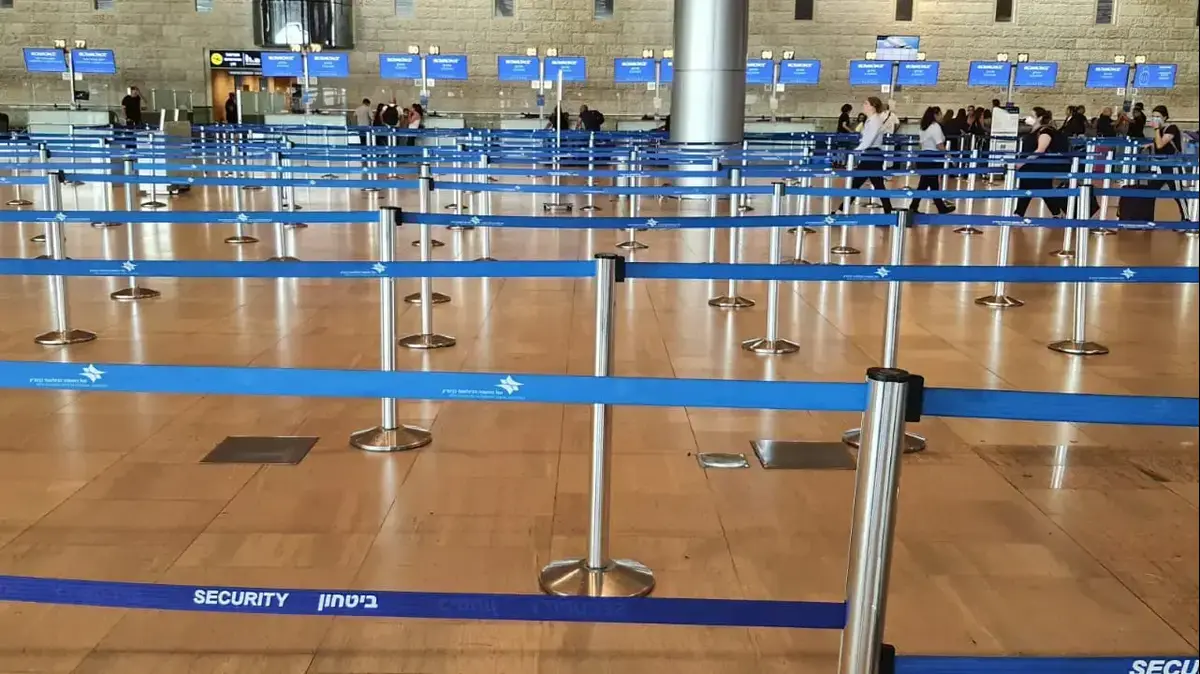The Turks demand a commitment for Israel to send an ambassador, in exchange for a similar step on their part • The main rock of controversy: the presence of senior Hamas figures in Istanbul • Foreign Ministry: No response
Prime Minister Benjamin Netanyahu and Turkish President Recep Tayyip Erdogan
Photo:
Moti Millrod and AFP
Turkey sent a message to Israel that it was ready to send an ambassador to Tel Aviv, as soon as Jerusalem undertook to send an ambassador to Ankara at the same time.
This is what Israel Today first learned from a Turkish official.
The main bone of contention between the two countries was and remains the presence of senior Hamas figures in Istanbul.
In the past decade, Israeli-Turkish relations have seen ups and downs.
It all started with the "Maui Marmara" flotilla in May 2010, which following the conclusions of the Palmer report that examined it, Turkey decided to downgrade relations to a second secretary (Chargé d'affaires) and expelled Israeli Ambassador Gabi Levy. On March 22, 2013, during a presidential visit Former US President Barack Obama in Israel, Prime Minister Benjamin Netanyahu called Turkish President Recep Tayyip Erdogan and apologized for the incident.
Israeli-Turkish confrontation live
In the same conversation, the two agreed on the normalization of relations between the two countries.
From that year until 2016, when Ambassador Eitan Naa was appointed, those who filled the position of senior diplomat in Ankara are Yosef Levy Sefri and Amira Oron, who currently holds the position of Ambassador to Egypt.
At the end of the six-year crisis, a reconciliation agreement was reached, following which Na'a was sent to Ankara, while on December 12, 2016, Turkish Ambassador Kamal Okem submitted the charter to President Reuven (Ruby) Rivlin.
Relations have not been stable for a long time and as early as May 2018, the Turkish Foreign Ministry decided, in the wake of the "return marches" in the Gaza Strip, to summon the ambassadors in Tel Aviv and Washington for consultations - and deported the handsome Israeli ambassador.
Meanwhile, the Turkish ambassador returned to Washington, but did not do so regarding Tel Aviv.
According to Ankara, the Turkish ambassador only "returned to consultations" from Tel Aviv, a well-known diplomatic step - but not one that has been used for years.
Following their perception that in contrast to the Maui Marmara event, the diplomatic level did not change, they clarified to the Israeli Foreign Ministry that for them, if Turkey accepts an Israeli commitment to send an ambassador to Ankara, they are willing to appoint an ambassador and return him to Tel Aviv.
Turkish Embassy in Tel Aviv / Photo: Gideon Markovich
Recently, Turkey has changed its foreign policy regarding Middle Eastern countries in general and Israel in particular.
From a state of firm speeches, Ankara has moved to a completely different method.
In December, President Erdogan declared that "Turkey wants to improve its relations with Israel. Our intelligence relations with Israel continue."
This happened about three weeks after his associate, Admiral Jihat Yaiji, offered Israel a joint maritime border agreement, which was first published in Israel Today.
The trend continued last month, when a member of the presidential advisory team for economic policy, Dr. Hahn Yardkol, attended a conference that dealt with the re-perception of relations between Jerusalem and Ankara alongside Israeli Foreign Ministry officials. On the other hand, even when Ankara expressed concern In a maritime area in the eastern Mediterranean that Turkey and Greece do not agree on the identity of ownership over, Ankara's complaint to Israel was polite.
Israel is not the only country in the eastern Mediterranean that Turkey is working to normalize relations with.
While in Ankara working to normalize relations with Cairo, Turkish authorities have ordered Al-Sharq, Watan and Kamlin channels, which are affiliated with the Muslim Brotherhood and broadcast from Istanbul, to stop visiting Egypt.
This could hint that if Israel agrees to improve relations with Turkey, Ankara will agree to take action to one degree or another against the activities of senior Hamas figures staying in Istanbul.
PM: "We are in talks with Turkey"
In contrast to the warming of relations between Turkey and Egypt, which in Cairo is currently still not acknowledged, an admission was accepted in Israel at the Likud election conference in Bat Yam on March 10.
"We are in talks with Turkey," Prime Minister Benjamin Netanyahu declared, noting Jerusalem's excellent relations with the rest of the Middle East.
The Turkish proposal for a joint maritime border agreement, first published in "Israel Today"
"Turkey and Israel have never severed diplomatic relations between them, despite all the negative events over the years," Carl Valencia, a political commentator for T24 and the Jewish newspaper Shalom, told Israel Today.
"The two countries have succeeded in severing economics and politics, helping each other on humanitarian issues. The channels of dialogue are always open, so the three countries do not simply give up on their relationship. However, their relationship has suffered greatly and requires political will and confidence restoration." .
Valencia added that "bilateral relations between the two countries have always been sensitive when it comes to the Palestinians. At the same time, the personal hostility between the leaders is another limitation."
Regarding Turkey's foreign policy in general, Valencia notes that "Turkey's growing isolation in the region and tense relations with the US are what are causing its proposals to Ankara to normalize relations with countries in the region, including Israel."
The Turkish commentator estimates that "Israel will not be denied the opportunity to restore relations with Turkey, but it is certainly interested in Turkey's intentions. Beyond that, Turkey was an essential economic, diplomatic and security partner for Israel. However, the situation is different today. When Turkey-Israel relations "Israel has deepened its relations with many countries in the eastern Mediterranean and the Arab Gulf. Ankara's support for Hamas, its growing interest in Jerusalem and the change in foreign policy, require Jerusalem to act cautiously."
Ismail Haniyeh (left) and Khaled Mash'al in a meeting with Erdogan in Ankara / Photo: AP
Dr. Chai Eitan Cohen Inrojek, a modern Turkish researcher at the Jerusalem Institute for Strategy and Security and at the Moshe Dayan Center at Tel Aviv University, explains that "the question is not whether Turkey wants to normalize relations with Israel or not, but whether it should - and it should.
Turkey's immediate interests require immediate changes in Turkish foreign policy regarding the eastern Mediterranean and Syria.
Iran has a growing influence in the region - and Turkey wants to curb Iranian influence in Syria, just as Israel wants.
"At the same time, Turkey-US relations are deteriorating day by day. Therefore, Ankara needs Jerusalem as a 'bridge' to Washington in order to reduce the pressure from the Biden administration."
Regarding the normalization of relations, Dr. Cohen Inrojek concludes that "Turkish support for Hamas is the most serious obstacle, but it is not an impossible task - Turkey can make the necessary maneuvers to meet Israel's demands on this issue.
I think what happened to the Muslim Brotherhood may happen to Hamas as well.
However, the measures against the Muslim Brotherhood were only initial.
"Turkey can take significant steps to convince Israel of the truth of its intentions."
The Israeli Foreign Ministry declined to comment.








